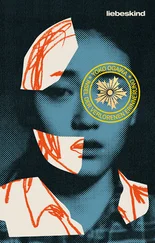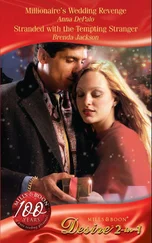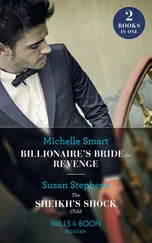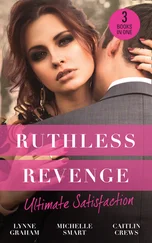“What’s your favorite subject in school?” he said. It was the kind of question you asked a child, and it occurred to me that there were more important topics he might have broached—her mother’s condition, their economic difficulties, perhaps the apology he owed them. I began to worry that my presence was inhibiting him, making things complicated.
“Classics,” she said, setting down her knife and fork and wiping her mouth with her napkin. “And English … and music. I guess music is my favorite.”
“Music, is it? That’s fine. How about you?” he asked me.
I blurted out “Biology” for lack of anything better to say. Biology, P.E.—What did it matter? We were just talking to fill the silence.
“Do you play a sport?”
“No, not really.”
“Ah, they’ve used truffles in this consommé,” he suddenly remarked with obvious pleasure. “Do you like them?”
“I’ve never had them before.”
“They’re something of an acquired taste.… And what do you do when you’re not in school?”
“Play with the cat, do the laundry, listen to music—stuff like that.”
The waiter brought out the fish course. The man had ordered sea bream with a pea-green sauce; his daughter had scallops meunière, I had a steamed lobster.
She ate with impeccable table manners, her back straight, her knees flush together, her feet planted evenly on the floor. She kept her eyes on her plate, and raised them only when answering a question and then only slightly, as though she were looking at a spot near the butter dish at the center of the table.
I glanced over at her whenever I had the chance. Her hair fell in dainty wisps around her face. She had nice features—an intelligent brow, a firm jaw—but she was difficult to read. On the one hand, she could be pretty tough on her father, but at the same time she was her usual apologetic self. She seemed to doubt that she was worthy to be eating these delicious scallops, or even to be here at the table.
Next came the meat course, served with a flourish by several waiters. I was already full, but the two of them went on eating almost greedily, so I forced myself to eat the meat as well.
“Do you play an instrument?” he asked. “The piano? The guitar? The violin, perhaps?”
“No,” she said. “We don’t have any instruments at home.”
He coughed, then his knife struck the plate with a harsh clatter. She shook her head, dismissing him.
I suddenly recalled that I’d spoken with this girl once before, at the beginning of third grade. Why had I forgotten it until now? It was after classes had ended for the day. I was passing the music room, but I stopped, sensing someone was inside. When I looked in, she was standing on tiptoe, reaching up to open the glass door of a cabinet. She was alone. I don’t know why I stood there watching her. I must have been curious. Or perhaps it was the glimpse of snow-white skin I saw on her wrist as she raised her arm. The cabinet door creaked and she took a deep breath as she reached for the violin inside. She examined it, almost fearfully, and then clutched it to her chest. “What are you doing?” I said. But I shouldn’t have interrupted her; I should have left her alone with the violin. She jumped at the sound of my voice. “Nothing,” she said, “I’m not doing anything,” and hurriedly replaced the violin in the cabinet. One of the strings must have struck the door, and a sound like the cry of a small bird floated across the room.
Dessert arrived: strawberry cake covered in a thick layer of whipped cream. The man wadded up his stained napkin and set it on the table.
“You’re welcome to your father’s as well,” he said, sliding his plate toward her.
An icy gust seemed to pass between them, and the word “father” hung in the air. I glanced over again and saw her devouring her cake, lips shiny with cream.
“No, thank you,” she said.
* * *
The man insisted on driving us home in the expensive black sedan he had parked in front of the restaurant, but she politely refused. We started walking, but when we came to the subway stop near the restaurant, she marched right past it and we continued on by foot all the way back to our neighborhood. She walked quickly, clutching the strap of her shoulder bag, eyes down on the sidewalk, and she said not a word the entire way.
I was afraid she was angry with me. She had brought me along, but I had been of no use whatsoever. I had eaten my fill of the fancy lunch but done nothing to make the meeting with her father any easier.
I tried to keep up with her, but not get too close, and I searched my head for something to say that might comfort her. But nothing came to me.
The sun began to set, and the sky turned a deep red. Some children flew past us on their bikes, heading home from the park. The sound of laughter on a television came from a house nearby. I caught a glimpse of a stray cat, its tail flicking as it darted down an alley. Though the evening was still, her hair fluttered beautifully, and I could see her ears, pale and transparent like the skin I had glimpsed that day in the music room. They bore no resemblance to those of the man at the restaurant. My chest felt tight. It seemed so many things—the unfamiliar food, the silence—were making me restless.
At last, and without warning, she stopped, like a wind-up toy that has run down.
“Thank you,” she said, looking back at me. Her voice was hoarse, she sounded exhausted.
We sat down for a moment on the steps of an old building. There was a barbershop across the way, and a nursery school beyond that. Behind the buildings there sloped a small hill that had been planted with fruit trees. A motorcycle passed, then someone walking a dog, but there was little here to disturb us.
“We should rest a bit,” I said.
“You’re right,” she said, smoothing her skirt. The soft material brushed against my leg. Her face was disappearing in the dusk. The sweat on my back gave me a chill.
“Where is your mother?” I asked.
“Chuo Hospital.”
“I’d like to visit her,” I said.
“Really? That would be wonderful. I’m sure she’d be pleased. She gets so lonely.”
An ant crawled between our shoes on the hard concrete steps.
“My mother is a typist,” she said, looking up at me. “A really good one. The fastest and most accurate in her office. She can type anything—letters, reports, the minutes of a meeting. She’s even won prizes for it. Her fingers are perfect, long and very flexible.”
“You have beautiful fingers, too,” I said, looking down at her hands where they rested on her lap.
“She didn’t start out wanting to be a typist. She wanted to play an instrument—and I’m sure she would have been really good at music.”
The stray note from the violin in the music room seemed to echo in my ears.
“This used to be a post office,” she said, as if to quiet the sound in my head. She nodded at the building behind us. “A long time ago, when we were in kindergarten.”
A rusted sign hung above the door, the characters for “post office” barely legible.
The door was locked up with a chain, but just slightly ajar. She peered inside through the narrow opening. “Look!” she called, sounding happier than she had all afternoon.
I put my eye to the crack as well, and at first I could see nothing in the dim light. Gradually, as my eyes adjusted, the inside of the building came into focus.
“Weird…,” I murmured. The building was filled almost to the ceiling with piles of small, dark spheres of some sort, like tennis balls.
“Kiwis,” she said.
“Kiwis?” I repeated.
“Let’s have a look.”
“But it’s locked.”
“Who cares?” she said, and then she picked up a rock and began to pound at the chain. Her composure vanished as she viciously struck it over and over, until at last it snapped and the door swung open. We stepped inside.
Читать дальше












